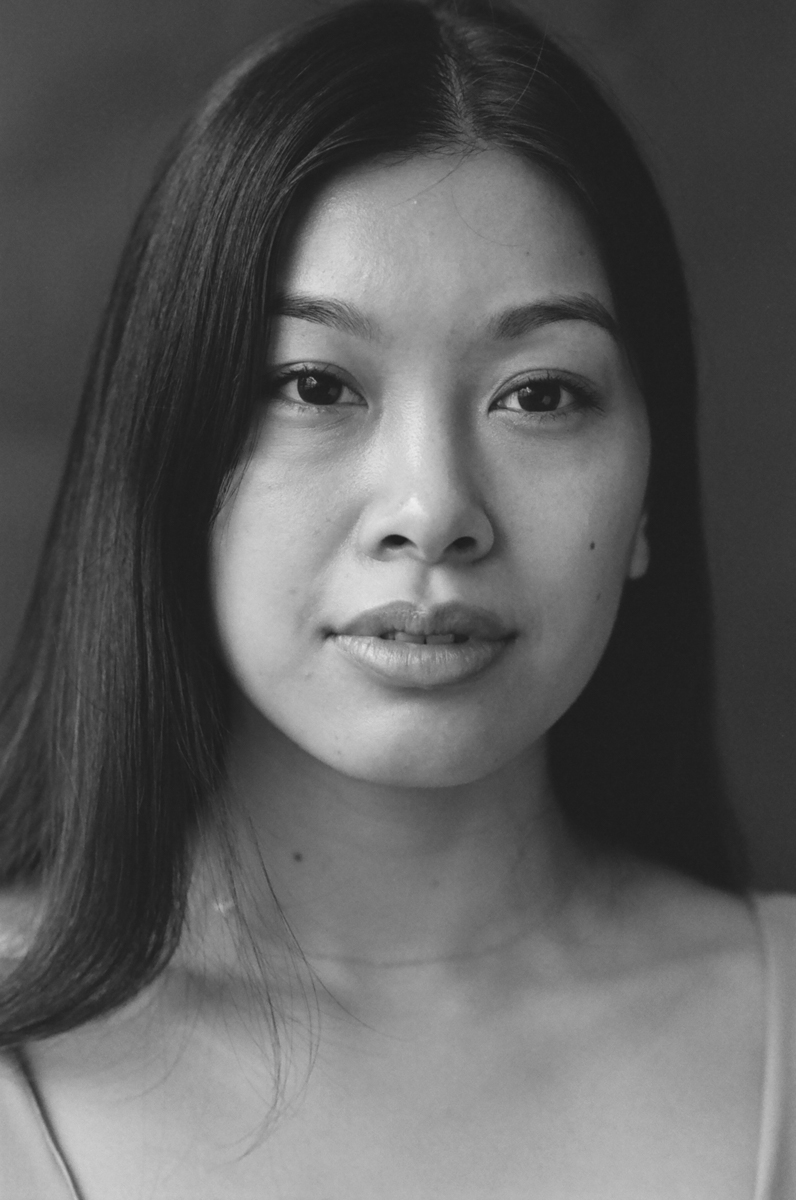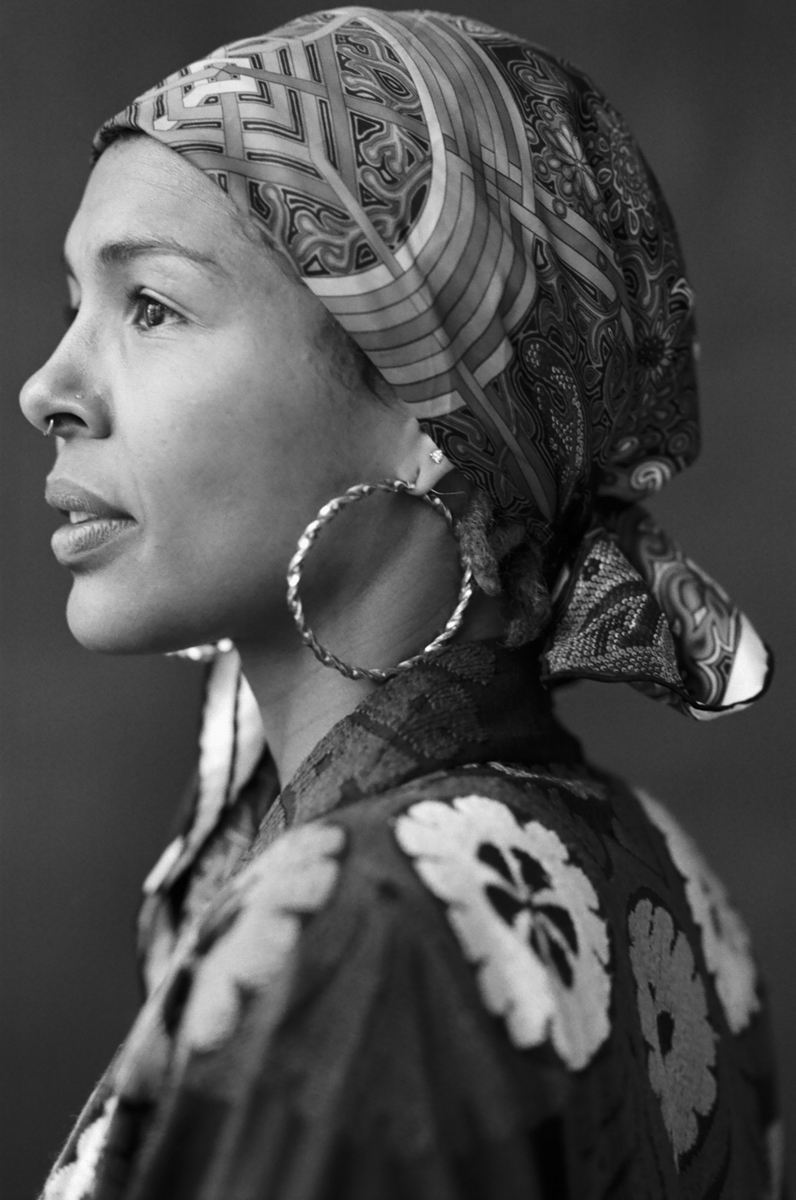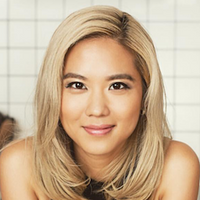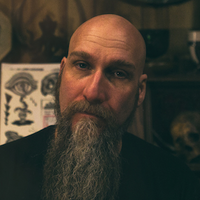As told to T. Cole Rachel, 2492 words.
Tags: Photography, Art, Inspiration, Process.
On staying true to your vision
Photographer and visual artist Delphine Diallo discusses how to let your own personal vision dictate your professional path, and why everyone should be able to access their own creative potential.Originally published on September 6, 2018
Working photographers often split their time between commercial projects and their personal projects. It must be nice when commercial work comes to you specifically because they want you to do your own thing with it.
I’ve worked for years so that people can see that I’m always me, which means if you check my Instagram or check my website, like 90% of the work is non-commercial. There might be commercial work in there, but you probably won’t notice it. If you do see it, it’s just a permutation and use of the research from my own art projects bleeding into the commercial.
The creative possibilities in the world are infinite, but for me, this world is about the woman as subject. It’s about equating the icon, the goddess, the warrior, the sister, the mother… There are so many aspects of this to explore. I felt like there was an industry that was finally asking for my skills because there just aren’t a lot of photographers doing this. I find that I don’t see the world the way a lot of photographers do. Part of my mission has been trying to see the world through the eyes of the woman, through the eyes of many different women.


One of the questions we get the most from aspiring photographers is simply, “How do I get my work seen?” That seems to be the biggest hurdle, especially in the beginning.
It sucks. You just have to do the work for the right reasons. I worked in other industries for a long time. I worked behind the scenes. I was a follower. I was working with different companies, doing my thing, but eventually I got burnt out. When that happened, I had to question myself. I realized that I hadn’t been honest with myself, in my soul, about what I wanted to do. I had to go out and do things on my own. You realize that you have to implement the same practice and discipline that you had in school. You have to get up early in the morning and just go. You are doing it because you want to, because you want to be free.
There are all these things you have to do that you might not want to do, especially at the beginning, but you have to implement this kind of disciplined practice into your life. You say, “I have no other choice. I am going to do it and, by the way, nobody’s going to do what I’m doing because the art inside of me is unique.” I felt like if the work was coming from this pure place—if it was truly an expression of my own consciousness and vision—then it would have to be very different from everyone else’s and then there is no competition. You are only trying to fulfill yourself.


With this kind of work there is a market, for sure, and there is also game to play. I’m aware of the game. In that sense, I’m trying to work in every form, which means I’m doing things in the art world, I’m doing commercial work, I’m working with artists and musicians, I’m consulting for people. And because I am able to create, I always want to help others to try and communicate their skills as well.
You took a big leap of faith earlier in your career—leaving behind the stability of a different kind of job in order to pursue your art. That leap is hard for people, especially when it means leaving behind a certain kind of security and moving into the unknown.
Yes, the insecurity that comes with change. But you realize that you’re always going to have that, in some form, even when you start to do well. Money doesn’t always equal security. I worked very hard and had to experience the hustle before getting any success, but when I got money I realized it’s not about that at all, at all. For me, it’s really about acquiring more tools for production and spreading consciousness and inspiring people more than the money itself. If you gave me a million dollars today, I’d just start working on some new thing about how to use that to implement some kind of positive gift to the world. I’d want to use it to inspire people and help people, it would have to be about something more than just the work.
I’m very fortunate. I have a healthy life. Whatever you see on my website, whatever work you see on there, is evidence of a healing life. The work has been healing me through the years and my hope is to heal others now. You just want to pass along this kind of vision.
Photography mimics the way you look at the world, often on an unconscious level. The vision for me is about helping people to transform and to be awake. But for most photographers it’s about making good pictures and being in the market. It’s an industry.
Every school has a photography major now, everything to provide you with the tools to pursue this as a career. But when you are on that path, it’s easy to become unaware of your soul and your subconscious. A school of photography will never make you study that. These kinds of photographers apply the process and the format that’s been taught to them in books, but they forget to apply all the other stuff they have inside themselves.


There is a lot of photography that is all about tricking you. The vision of it is beautiful; it’s made by people who know how to make good things. I see certain work and think that I can’t criticize the skill involved and I appreciate the amount of success you might have achieved in your career, but if I take a look at the pictures, all I feel is a kind of emptiness.
You work extensively in portraiture. What is that process like for you? And what makes for a good portrait?
It’s very intense when I’m doing a portrait. And the process is actually very, very short. I want to connect with the subject and I feel as if I’m trying to heal them in some way. By taking your picture, I want to expand your power, I want to show the possibility of your soul. That’s pretty much what I feel when I see someone and get to photograph them. It’s like I’m just tuning in to them; it’s one second, and then—boom—the picture is done. And usually I don’t take more than 10 pictures, maximum. It’s the opposite of commercial work where they want you to take the picture over and over again to find out where the beauty is. And I’m always like, “Dude, you lost it.” They lose it because that reach for perfection pushes us away from real love and real, deep understanding of each other. That kind of work doesn’t interest me. You’re looking for this false sense of perfection and it keeps you from seeing the actual person in front of you.
You’ve been photographing women in New York City for an ongoing project. How does a project like that work?
I want to put all of these different kinds of people together. I want to make women feel and appear strong. So I decided to photograph all the women in New York who wanted to be a part of the story. Early on, I realized that it wasn’t fair if I was choosing the women because, even if it was subconscious, I was judging them in some way even when I wasn’t meaning to. So I decided to say yes to every woman who wanted to be a part of the project. I posted the call on Instagram and my assistant booked everyone who wanted to do it. We ended up with 140 women and, following my own intuition about it, I shot 20 women per day. That was very intense. I shot everything on film.


With those pictures, something amazing happened. When I printed them and I put them up on the walls, I stood back and looked and it was like the number was just perfect. I didn’t, for example, put out a call for a certain number of black women or white women or Asian women, but ultimately all the women in the project were from everywhere. It just happened that way. Without forcing it to, the series depicted the kind of diversity that reminds me of why I’m in a place like New York City. It was also a good lesson in letting go as an artist. I didn’t try and control everything. It was really about allowing space to follow intuition. These women all came in on their own, they arrived in their own clothes. I didn’t have to do anything, I didn’t retouch anything. It was really about trying to feel connected to them in this one little moment. The only thing that I’m using is the eye.
Is the studio your preferred place to work?
I can work anywhere, but my studio is kind of like a temple. It’s called a temple. I work there and I teach workshops there. When people come there, especially with something like shooting all of these different women, I want them to feel like it’s their home. I have tea. I have food. They can talk to other women there when they come in. I don’t want them to feel like they’re in a studio. I think that’s why all of these pictures ended up being so different. Every woman was able to bring something special of themselves to it. I don’t ever want them to feel intimidated, by me or by anything else. Once they are ready, we’re ready. And if they are not ready to sit yet, I will wait. That’s also something they will never teach you in school. Sometimes you have to let the subject control you. Sometimes the subject becomes the master.
You’ve done work for magazines, as well as commercial work for brands. Do you feel like the consciousness of those industries is changing? In terms of representation and aesthetics and the kind of people being hired to do these jobs?
The shift of consciousness in the industry right now is a necessity, but it’s still mostly really terrible. There is this talk of diversity, but that means that I might be offered a job and then people feel like it’s appropriate to say things to me like, “We need Black photographers.”
For me, it’s beyond being Black. My work is not about being Black. The majority of my work deals with people who exist in some kind of minority, but I’m not calling and saying, “Hey, I’m Black, you’re Black, they’re Black,” as a way of being hired. I don’t need to tell people that I am Black, but people always find a way to make me realize I am. It’s okay. I’m just saying that behind the scenes, it all remains pretty terrible.
Hiring a young Black photographer for Vogue is great, but it’s a grain of sand in the desert. There is still this entire ocean of subconscious decision making happening at the highest levels, whether that be in Hollywood, among producers, art directors, or creative agencies. I mean, I can’t even talk about it. Last year someone asked me about hiring me for a job because they didn’t know any other women artists. How is that possible?
It’s the most ridiculous thing. I have to believe that at some point we are moving past this. When I see young girls following people like the Kardashians on Instagram, it just doesn’t make sense to me. Why is that inspiring to you? Everything it represents—the makeup, the clothes, whatever—is this focus on materialism at its most extreme. On the other side of that, I hope, is this new generation of women I like to think of as being more like myself. I want to be a warrior for that.
I have to believe that if I’m here, then there must be more people like me out there. And it doesn’t matter where they come from. You know what I mean? At some point it will become very ridiculous for the system we call “entertainment” to always make people so dumb.


You have a very holistic approach to creativity. Is that the key? Realizing that your creativity is not divorced from all the other parts of your life?
I believe people are born free. Kids are born artists and along the way we somehow make sure they can’t use their creative power. We love stories about boy wizards and creativity, but as a society there is this fear that we won’t be able to function somehow unless everyone stays trapped in their 9-to-5 jobs. I just want to show people there are other ways to work and live—other ways that creativity can be a part of your life. Everything is connected. You shouldn’t have to give up that part of yourself to survive in the world.
I was walking down the street today and I looked up and saw this woman through her window, painting in her studio. I couldn’t help but stop and stare. It made me so happy to see this person, clearly just immersed in her practice, doing what she loves to do, and looking so happy and engaged. Everyone should be able to experience that. It doesn’t mean that everyone necessarily needs to be an artist, but just that everyone has the capacity to make something and express some part of themselves that makes them happy. Know what I mean?

I love going to Senegal… The warmest people in the world.
I love New York… The most open-minded people in the world.
I love Brazil… They understand bliss and living a daily life with the most joy between them.
I love my nephews and the children in my collage workshops.
I love my tribe in New York.. All of us accepting and sharing each other’s different cultures.





